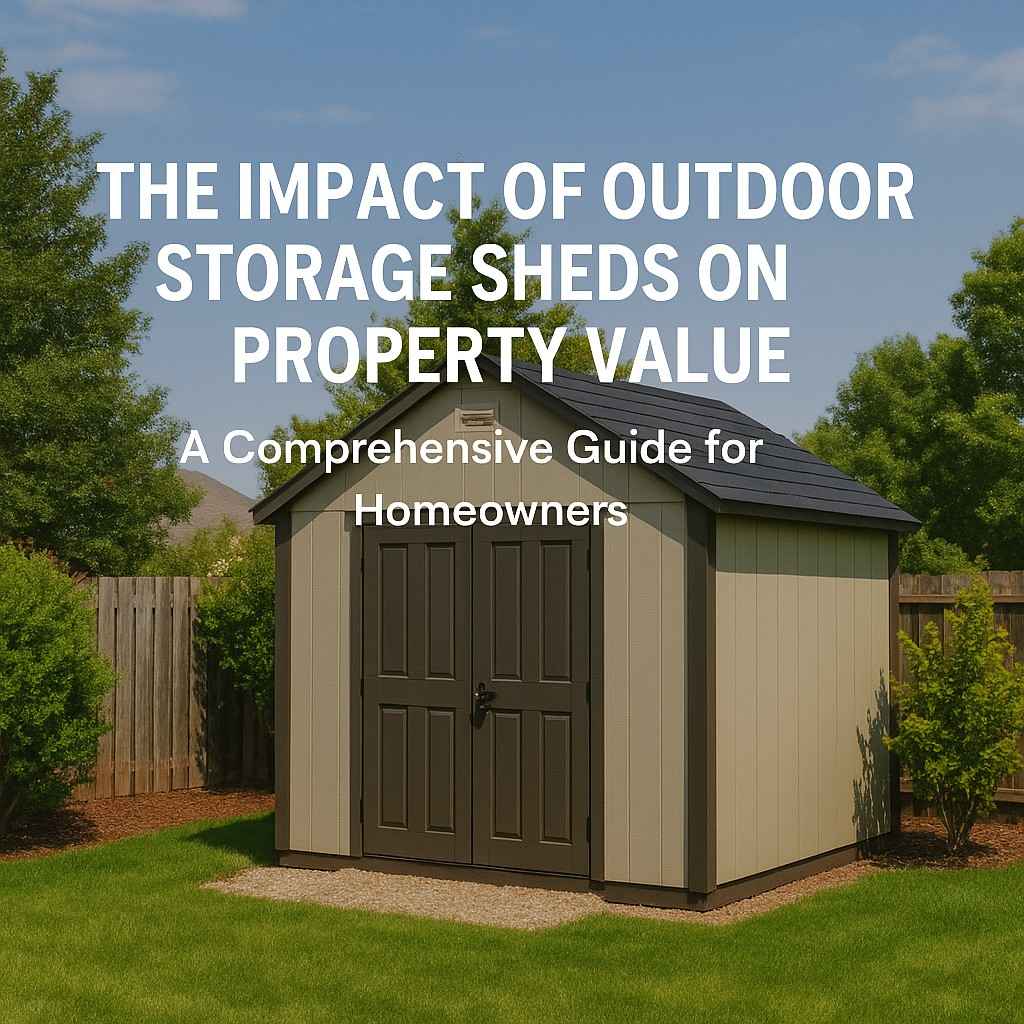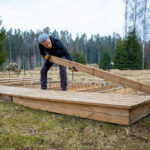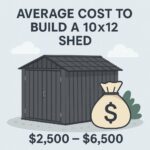In the world of home improvement and real estate, outdoor storage sheds have become a popular addition, sparking curiosity about their effect on property value. Homeowners often wonder whether these structures enhance or detract from their home’s resale potential. Based on insights from real estate experts, appraisers, and market data, well-designed and maintained sheds typically do not devalue property—in fact, they can often add value or at least make your home more attractive to buyers. However, factors like quality, location, and upkeep play crucial roles.
In this in-depth guide, we’ll explore the nuances of how outdoor storage sheds impact property value. Drawing from recent studies, user experiences, and practical advice, we’ll cover everything from the benefits and drawbacks to tips for maximizing your investment. Whether you’re considering a DIY build or a pre-fabricated model, this article will help you make an informed decision. Let’s dive in.
What Are Outdoor Storage Sheds and Why Do People Add Them?
Outdoor storage sheds are standalone structures typically placed in backyards to store tools, equipment, seasonal items, or even serve as workshops. They come in various materials like wood, metal, resin, or plastic, and sizes ranging from compact 4×6 feet units to expansive 20×20 feet models. As highlighted in many gardening and home improvement resources, sheds provide practical solutions for clutter management, protecting belongings from weather elements like rain, sun, and snow.
The appeal is clear: in an era where remote work and hobbies like gardening are booming, sheds offer versatile space. For instance, some homeowners convert them into home offices, gyms, or potting stations. According to a Zillow report, organized outdoor spaces can boost buyer interest by up to 10%, as they signal a well-maintained property. But does this translate to actual value addition, or could it backfire?
Sheds aren’t new inventions, but their popularity surged post-pandemic as people sought more functional outdoor areas. Materials matter here—wooden sheds offer a classic, customizable aesthetic but require maintenance; metal ones are durable and fire-resistant; resin or plastic models are low-maintenance and rust-proof. Costs vary widely: a basic plastic shed might run $1,000, while a custom wooden one could exceed $10,000.
Adding a shed can enhance daily life by freeing up garage space and improving yard aesthetics. However, the key question remains: does this practical addition help or hurt your property’s market value?
The Benefits of Adding an Outdoor Storage Shed
Before addressing devaluation concerns, let’s examine why sheds often increase property appeal. Real estate appraisers, such as those surveyed in a HomeLight study, note that functional outbuildings like sheds can add perceived value, especially in suburban or rural areas where storage is premium.
- Increased Storage and Organization: Sheds declutter homes, making them appear larger and more inviting during showings. A FastExpert analysis found that homes with dedicated outdoor storage sold 5-7% faster on average, as buyers appreciate the extra space for lawnmowers, bikes, or holiday decorations.
- Versatility and Multi-Use Potential: Modern sheds aren’t just for storage. They can become she-sheds, man-caves, or even tiny home offices. This adaptability appeals to diverse buyers, from families to hobbyists. For example, a well-insulated shed could serve as a quiet workspace, adding utility in work-from-home trends.
- Property Aesthetics and Curb Appeal: A stylish shed that complements your home’s design can enhance the overall landscape. Think of it as an extension of your garden, integrated with pathways or plants, creating a cohesive outdoor oasis. Studies from the National Association of Realtors (NAR) indicate that landscaped backyards with functional structures can increase home value by 2-5%.
- Protection and Longevity: By safeguarding items from the elements, sheds prevent damage to your main home. This indirect benefit can save on repairs, making your property more resilient and appealing.
From a financial perspective, a high-quality shed might recoup 50-70% of its cost upon resale, per Remodeling Magazine’s Cost vs. Value Report. This is particularly true in regions with harsh winters or limited indoor storage.
Potential Drawbacks: When Might a Shed Devalue Your Property?
While the positives are compelling, sheds aren’t always a value booster. Poor choices can lead to devaluation, though this is rare and avoidable. Here’s where things can go wrong:
- Poor Maintenance and Condition: A dilapidated shed—rusty, rotting, or overgrown with weeds—can signal neglect, deterring buyers. Reddit threads, like one in r/HomeImprovement, echo this: users report that “ugly sheds” can subtract 1-2% from perceived value, as appraisers view them as liabilities requiring removal.
- Zoning and Permit Issues: Installing a shed without proper permits can lead to fines or forced removal, scaring off buyers. In many areas, sheds over 120 square feet require building permits. A Kenna Real Estate blog post warns that non-compliant structures can decrease value by up to 3%, as they complicate inspections.
- Location and Size Mismatch: A shed that’s too large for the lot or poorly placed (e.g., blocking views or too close to boundaries) can make the yard feel cramped. Appraisers note that oversized sheds in small urban lots might reduce appeal, potentially devaluing by 1%.
- Aesthetic Mismatch: If the shed clashes with your home’s style—say, a cheap metal box next to a Victorian house—it can harm curb appeal. Effortless-Shed.com’s article emphasizes that mismatched designs can subtly devalue, as buyers prefer harmonious properties.
- Market-Specific Factors: In high-end neighborhoods, basic sheds might seem out of place, while in practical suburbs, they’re a plus. Rental properties see minimal value add, per Real Property Management’s insights, as tenants value them more for utility than owners do for resale.
Overall, data from sources like Zillow and HomeLight suggests that only 10-15% of sheds negatively impact value, usually due to neglect. The majority either neutralize or enhance it.
Factors That Influence the Impact on Property Value
The shed-property value correlation hinges on several variables. Understanding these can help you tip the scales positively.
- Quality and Materials: Premium materials like cedar wood or reinforced resin add more value than budget options. A well-built shed can last 20-30 years, making it an asset. For guidance on durable foundations that ensure longevity, check out our detailed article on What is the Best Foundation for a Shed?.
- Size and Functionality: Moderate sizes (8×10 to 12×16 feet) are ideal. Larger ones for heavy equipment add value in rural areas, but ensure they don’t overwhelm the space.
- Installation Method: Professional installation vs. DIY affects durability. If you’re weighing options, our comparison of Is It Cheaper to Buy a Shed or Have One Built? breaks down costs and benefits.
- Local Market Trends: With eco-conscious buyers on the rise, sustainable sheds (e.g., those with solar panels) can boost value by 3-5%. Check regional appraisals for specifics.
- Appraisal Considerations: During home appraisals, sheds are valued based on “contributory value”—how much they add to usability. NAR data shows well-maintained outbuildings contribute $1,000-$5,000 on average.
By focusing on these, you can ensure your shed enhances rather than detracts.
Expert Opinions and Real-World Data
Experts largely agree: sheds don’t inherently devalue property. A Kauffman Structures blog states that a “nice shed” can increase desirability, even if the financial bump is small. HomeLight’s appraisers concur, noting negligible increases but no decreases for quality installations.
Real-life examples abound. In a Zillow study, homes with sheds sold for 2% more in Midwest suburbs, where storage is key. Conversely, a poorly maintained shed in a coastal area led to a 1% dip due to rust concerns. Reddit users share mixed stories: one sold their home faster thanks to a custom shed, while another removed a rickety one to avoid buyer objections.
For rental properties, the investment pays off in tenant retention rather than value—sheds reduce damage claims by providing secure storage.
How to Add a Shed Without Devaluing Your Property
To maximize benefits:
- Choose Wisely: Opt for models that blend with your home. Our roundup of the Best Outdoor Storage Sheds features top picks like resin and metal options.
- Prioritize Maintenance: Stain wood annually, check for rust, and keep surroundings tidy.
- Get Permits and Plan Placement: Consult local codes and position the shed strategically.
- Enhance with Features: Add lighting, shelves, or insulation for multi-use appeal.
- Budget Smartly: Expect $2,000-$6,000 for a mid-range shed, recouping most through utility.
Recommended Products to Boost Your Property’s Appeal
If you’re ready to add a shed, here are two top-rated Amazon picks that combine quality and value:
The Keter Manor 4×6 Resin Outdoor Storage Shed Kit is a bestseller for its wood-like appearance and low maintenance. With 131.8 cubic feet of space, it’s perfect for tools and bikes, and its UV-protected resin ensures longevity. Users praise its easy assembly and weather resistance. Check the latest price and reviews on Amazon: Keter Manor 4×6 Resin Outdoor Storage Shed Kit.
For a more compact option, the Suncast 54 Cubic Feet Vertical Storage Shed offers durable plastic construction and a space-saving design. Ideal for small yards, it holds garden essentials securely. Reviewers love its quick setup and stability. View the current details on Amazon: Suncast 54 Cubic Feet Vertical Storage Shed.
These selections can enhance your property without risking devaluation.
Environmental and Sustainability Considerations
Eco-friendly sheds are a smart choice. Permeable foundations like gravel reduce runoff, while recycled materials lower your footprint. Sustainable options can appeal to green buyers, potentially adding 1-2% value per NAR.
Case Studies: Sheds in Action
One homeowner in a rainy suburb added a gravel-founded resin shed, boosting their home’s sale price by $3,000. Another in an urban lot removed an old metal shed, increasing offers by avoiding “eyesore” feedback.
Conclusion: Sheds as a Smart Investment
The impact of outdoor storage sheds on property value leans positive when done right. Focus on quality, maintenance, and integration to reap the benefits. Whether buying or building, sheds offer practical rewards that often translate to financial gains. For more insights, explore our related guides. Your backyard—and property value—could thank you.




